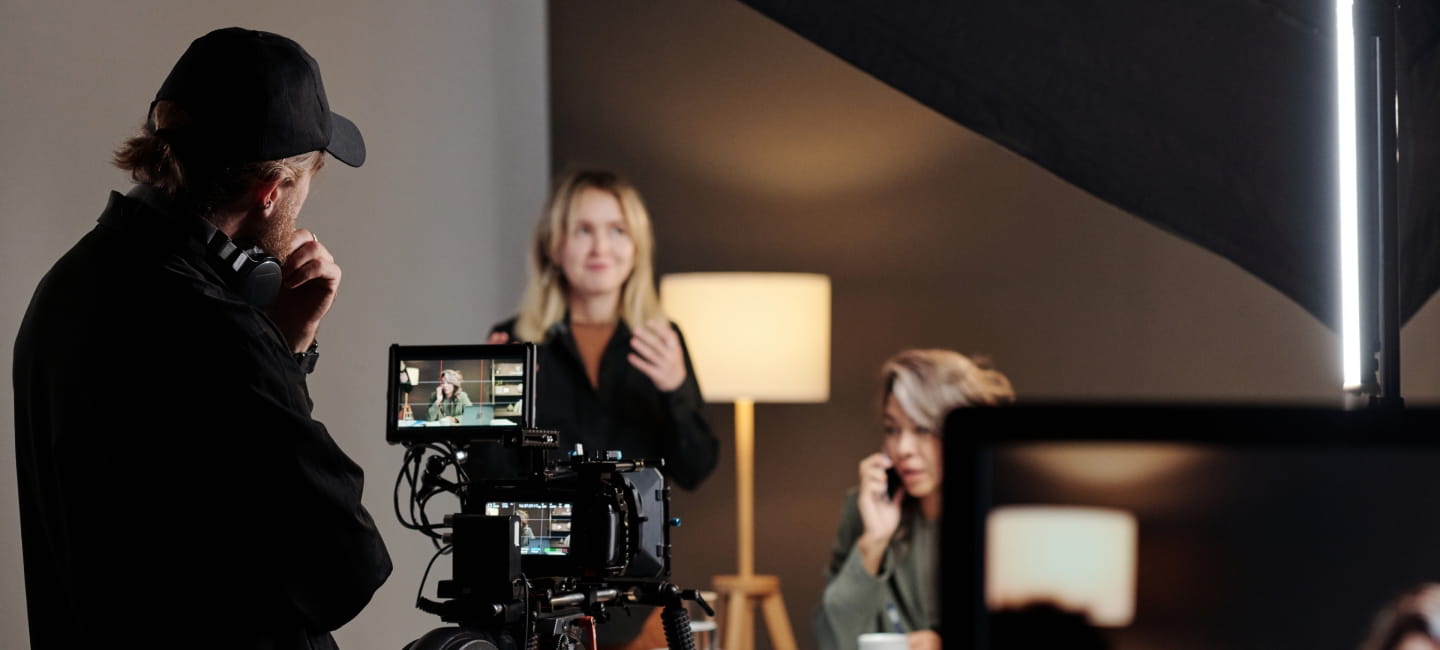
If it feels like your home only ever costs you money, it could be time to use those bricks and mortar to bring in some extra income.
Hiring out your home to a film, TV or advertising company is a fun – and potentially lucrative – way to get more out of your property.
Chris Owen, 75, and his wife Jan, 72, have fond memories of their home in Cheltenham featuring in iconic British sitcom Butterflies.
“Someone knocked on our door, saying they were from the BBC, and that they would like to use our house in a TV series,” says Chris. “We thought it was a joke, but they came back later that day, and we agreed.”
The sitcom, which starred Wendy Craig, Geoffrey Palmer and a fresh-faced Nicholas Lyndhurst, ran from 1978 to 1983.
“They filmed at our house for around four days each series,” adds Chris. “It was great fun. We’d have all the cast and crew in our home and, if it rained, there would be a dozen of them sat watching our TV.
“They were lovely people, and they treated us well, even inviting us to their parties.”
Back in the 1970s, the Owens received the princely sum of £50 for each day their home was used in filming, rising to £90 by the fourth series.
Just how much you can earn today depends on both the project in question and your property, says Cat Watson, Managing Director of location agency UKL.
If you live in a period property or have kept up a certain decor over the years, your unique space might be attractive for companies looking for something a little different.
If you’re retired, or semi-retired, and can be more flexible for when studios can rent your space, this can also be an advantage when trying to get your place used for a shoot.
“A small one-day brand shoot can earn between £500 and £1,200, while a big TV drama, where your home’s hired for longer, could net you a five-figure sum plus expenses,” Watson says.
“In 2023, our highest-earning location earned £120,000 for one shoot.”
Any money you earn from hiring out your home will be added to your overall income for the year and taxed accordingly.
However, it’s worth noting that you may be eligible to earn £1,000 in ‘trading income’ tax-free each year for this type of enterprise.
Just about any property could potentially be the set of a TV or film. “One week, we’ll get a request for a luxurious £1m property, the next, a derelict warehouse,” says Pam Cheema, Founder of Midlands-based location agency Places + Spaces.
“Beautiful interior design-led properties will always be popular but there’s also plenty of appetite for real-life properties.”
Even if you live in an unassuming flat or a modest terraced house, this desire for homes that reflect reality means your place could be exactly the location that a film or TV crew wants.
Location can make a difference, depending on the needs of the shoot. Although London used to be the top destination, Cheema says these days most production companies are prepared to travel for the right property.
Whether you have a traditional semi in the suburbs, a tiny flat by the sea or a minimalist open-plan apartment in the city, there are some property features that location scouts will particularly value. “Size is important,” says Watson.
“You don’t need a huge mansion but you will need large rooms and easy access for the crew. We’ll also assess the logistics: an amazing house could lose some of its appeal if a film crew would have to negotiate a narrow track to get to it.”
As it’s unlikely you’ll get a knock on your door like the Owens, if renting out your home for film, TV and photoshoots appeals, you may want to approach a location agency. They work as matchmakers, bringing production teams and properties together.
To determine whether your home is suitable, most location agencies allow you to apply online. Providing details of your home and some photographs will enable them to assess whether it deserves a place on their books.
Once signed up, a location agency will help you market your property. This might include tips on taking the best photos – or even taking them for you – as well as advising you on how to deal with any film crews and ensuring the right insurance is in place to protect your property.
And don’t be deterred if you get knocked back. There are plenty of location agencies to pick from, with many specialising in particular types of property or parts of the country – simply search for ‘location agencies’ and your nearby town / county to get started.
.jpg?sc=max&mw=800&h=450&la=en&h=731&w=1300&hash=3EC21D066ABA6239067CE811FA7BC45C)
As productions can range from a one-day photoshoot with a couple of people to a TV crew of 50 plus filming for six months or more, what you can expect as a location host will vary according to the job.
But, however large or small, Cheema says you need to be prepared for at least a little upheaval.
“The production team may move your furniture, bring in their own or even paint your home,” she says. “They will always put everything back to its original state, but the most successful hosts are those that are open-minded and flexible.”
As an example, Paul, 55, partners with UKL to hire out his property in Greater Manchester and has hosted everything from a six-part BBC drama to photoshoots with footballing legends.
“The start and the end of the day can be quite hectic, in an organised way, but everyone has always been incredibly polite and respectful,” he says.
Don’t expect to hang out on set with the stars, though. Although you’ll need to be on hand to let people in or show them around, the crew will be grateful if you keep your distance.
Watson says: “They’ll just want to get on with their work, so we recommend that homeowners keep out of the way. On larger projects, it’s normal for production companies to pay for you to stay in a hotel or Airbnb.”
Having a film crew, cameras, lights and assorted kit in your home means that damage and breakages can, and do, occur.
While the production company will have insurance to cover any mishaps, it can still take time to get things put right.
This is exactly what happened to one homeowner, who wishes to remain anonymous, when they hired out their home for a TV show.
“Moving film equipment around caused visible marks on my floor,” they told us. “It’s taken a few months to get it fixed through their insurance, but you do have to be prepared for this type of disruption.”
This experience hasn’t put them off renting out their home again, but as they had the support of a location agency throughout, they do recommend signing up with one before letting the camera crews in.
“They liaise between you, the production company and, if needed, the insurer. They understand the process and will look after your interests,” they added.
A location agency can also provide valuable advice to help ensure any filming or photoshoot runs friction free, troubleshooting potential issues with your location before the crew arrives.
“For anyone welcoming a production team into their home, little accommodating touches such as providing them with tea and coffee really does go a long way,” says Cheema.
“If they have an all-round great experience, they’re much more likely to hire your property again.”
And, with the potential to earn thousands from hiring out your home, some decent coffee and biscuits, space for lunches in the fridge – plus an ability to be open-minded and available to answer any questions – could prove a very rewarding investment.


From toys to board games to prepaid cards, we've researched the top options.




